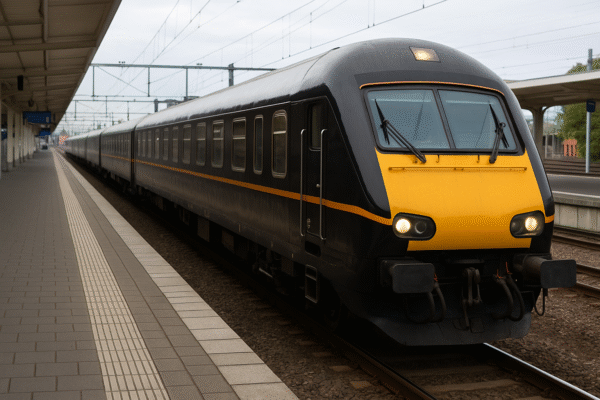Set to transform long-distance travel in Europe, Czech private rail operator Leo Express has filed a proposal for a 19-hour overnight sleeper train that will connect the North Sea coast of Ostend, Belgium with Bratislava, Slovakia, via more than 50 scheduled stops. The proposed launch is slated for 13 December 2026, offering one train per day in each direction. Although currently in the exploratory stage, this ambitious project has captured the imagination of sustainable travel enthusiasts and European tourists alike.
Departing Ostend around 19:10, the sleeper train traverses Belgium—serving Bruges, Ghent, Brussels, Leuven, and Liège—before making its way through Germany, with stops in Aachen, Cologne, Düsseldorf, Dortmund, Hanover, Magdeburg, Leipzig, and Dresden. The journey continues through the Czech Republic, including Prague, and concludes in Slovakia, with stops at Kúty, Malacky, Devínska Nová Ves, and finally Bratislava, arriving approximately 14:18 the next afternoon. The return leg reverses this route, departing Bratislava at around 14:44 and reaching Ostend by 21:52.
A New Dawn for Comfortable, Sustainable Travel
This sleeper train concept comes at an opportune time—overnight rail has seen revival as travelers prioritize sustainability, comfort, and experience. Sharing accommodations onboard—ranging from standard seats to couchettes (six bunks per compartment) and fully equipped sleeping berths—provides a versatile travel solution for passengers of differing comfort preferences and budgets.
With a capacity initially set at around 450 passengers, and potential expansion to 550 seats by late 2028, the service is designed to accommodate both budget-conscious and premium travelers. The refurbished coaches, paired with modern locomotives capable of speeds up to 160 km/h, aim to balance efficiency with comfort, all at an average journey speed of approximately 39 mph (reflecting its overnight nature).
Cultural Immersion Across Borders
This sleeper train is more than a transit route—it’s a curated European experience. Passengers traverse iconic landscapes and historic cities, from Belgium’s waterways and cobbled streets to Germany’s cultural heartlands, the ornate architecture of Prague, and Bratislava’s charming Old Town.
Instead of simply moving between point A and point B, guests can hop off in interim cities for impromptu explorations. This promotes regional tourism, especially in lesser-known stops often bypassed by air travelers. The slow pace means that transition between Western and Central Europe is experienced in full daylight—scenic, authentic, and immersive.
Moreover, travelers from the UK can benefit from a seamless connection—taking the Eurostar to Brussels Midi and connecting to Ostend for the overnight link—arriving refreshed and already halfway into Central Europe by early afternoon the next day.
Shaping the Future of Rail Travel in Europe
The Leo Express initiative exemplifies a growing trend of cross-border rail innovation. Though still exploratory, the detailed regulatory filings suggest serious intent. If approved and executed, this service could set a precedent for similar long-distance sleeper trains, pushing Europe’s rail network toward increased convenience, sustainability, and regional integration.
Operators across the continent are paying attention—Austria’s ÖBB is already reinvesting in sleeper trains, and platforms like European Sleeper are expanding routes between Brussels, Amsterdam, Berlin, and Prague. Leo Express’s proposed route, while logistically complex—with multiple national authority approvals and scheduling challenges—could catalyze a renaissance in European overnight rail.
Balancing Optimism with Reality
It’s important to highlight that Leo Express has described the submission as exploratory, not definitive. The project’s success hinges on securing track access in multiple countries, allocating infrastructure capacity, managing staffing and maintenance costs, and ensuring viable occupancy rates.
Nevertheless, if Leo Express overcomes these hurdles, the result could redefine travel for eco-conscious tourists, working professionals, and cultural explorers—offering a pleasant, memorable, low-carbon journey that replaces the stress of flights with the romance of the rails.
Conclusion: A Journey with Purpose
The proposed Ostend–Bratislava sleeper train by Leo Express offers a compelling blend of comfort, culture, and conservation. Launching in December 2026, it promises a transformative cross-Europe journey, weaving through historic regions and modern cities while prioritizing sustainability. Whether hailed as a game-changer or a visionary experiment, it underscores the renaissance happening in European rail—and the potential to rediscover the continent in motion.
For those dreaming of slower, greener, and more immersive ways to travel, this could be the most exciting sleeper train yet.
For more travel news like this, keep reading Global Travel Wire


















